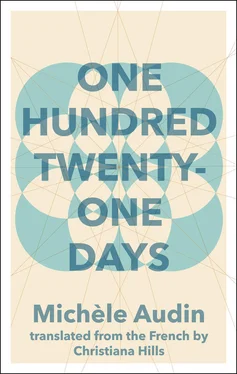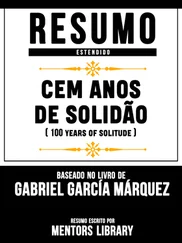“He had signed it as André Danglars,” he added. “That was the pseudonym he used to publish his last two mathematics articles.”
He had signed as André, thought Mireille, and she smiled as she remembered how André had laughed in explaining his choice of pseudonym to her. Pariset had then received a postcard from André, written in German and signed with his own name, sent from the camp. Pariset had rushed him a package, for which André had acknowledged receipt with a second postcard. Pariset explained the mechanism of this correspondence: the card would arrive in the offices of the Union Générale des Israélites en France (the Union of Jews in France), an office created by Vichy France, he clarified, but Mireille knew what the UGIF was. But she didn’t know about how this correspondence worked, which is what Pariset explained to her. The UGIF would call in the addressee and give him or her the letter, along with an official memo stating the rules that had to be followed when writing a response. Pariset had thus written back (in German). He specified that the first postcard from André had taken more than six months to get to him, that André had said in it that he was doing well, he was keeping his spirits up, and he had asked that the professor pass this news along to his family and friends. Pariset added that the card had most likely been addressed to him because André didn’t want to risk putting anyone in danger, and that he, Pariset, a professor at the Sorbonne and, above all, a non-Jew, was a good recipient. Writing to his family, who were hiding in Clermont-Ferrand, would have been too dangerous. For the same reasons, André hadn’t given the names of the friends he was thinking of.
“That’s why I wasn’t able to let you know,” Pariset added kindly.
But Clara could have, thought Mireille. Pariset then said he was already working on getting a scholarship for André so that he could start working on his dissertation again as soon as he returned.
“Without a doubt,” he concluded, “a tall, handsome, athletic boy like André has made it through. He’s going to come back.”
The mass of hope took shape once more. He was going to come back. It had already been two years since the roundup in Clermont. Mireille looked at the flags on the map of Europe — Upper Silesia had been liberated in January. They now knew that the camp, which was called Auschwitz, had been evacuated of almost all its deportees before the Red Army had arrived. So where would he be coming back from? And when? The surrender hadn’t taken place until May 8th, they would have had to find trains for them, of course, and then how many days would it take to come back from so far, because it was far, across a devastated Germany, on railways that had suffered so many bombings? Maybe he got sick, they had treated him, that had caused the delay. He wouldn’t be delayed any longer, others were already coming back. She went to the Hotel Lutetia, where they were taking in the survivors, in the joy of some, but in the anguish and pain of all. She came home terrified. And what about him, what had become of him?
They were coming back. In July, Pariset wrote Mireille to say that Doctor Sonntag, a friend of the Pariset family who had been at Auschwitz with André, had returned to Strasbourg. He had arrived from Buchenwald in April, but had left almost immediately to go help deportees returning from Bergen-Belsen. Now that he was back, he was gradually starting to see patients again. The mass of hope was unraveling. Mireille called, arranged an appointment, caught a train, walked through Strasbourg while avoiding the Silberberg’s shop, sat patiently in the waiting room, and was finally called in by the doctor, to whom she admitted that she wasn’t sick, but rather that she was a friend of André Silberberg’s and Professor Pariset had told her that, just maybe, the doctor would be able to give her news about André.
“My friend Pariset called me. He told me about you,” said Sonntag, taking her by the shoulders.
He led her to the end of the hallway into the living room of his apartment, entrusted her to his wife, finished his appointments.
“Now,” he said upon returning, “we have time to talk.”
He told Mireille that he had seen André every day for a year and a half, that they had spoken a lot, that André, as always, wouldn’t go down without a fight.
“Did you know that before the war, I had to give him stitches after a brawl?”
Mireille remembered the discretion and pain with which André had told her about his life in Strasbourg and his rebellions before the war.
“He told me he’d had to have stitches, but I didn’t know that was you.”
Sonntag told her about how he and André had been assigned to the Revier, the camp’s infirmary, until January, when all three Auschwitz camps were suddenly and violently evacuated. He didn’t say anything about the conditions in which they had lived for the eighteen months before, but he did talk about how he and André had walked side by side, in the snow, for forty-eight hours, after which they had arrived alongside a railroad and had been made to climb into uncovered freight cars. There had been a lot of pushing and shoving, during which he and André became separated. He had ended up in Buchenwald. He didn’t know where André had been sent.
“One of my colleagues was in the same group as André,” he said to Mireille, “Doctor Meyerbeer, a psychiatrist. He got to know André well at the camp. Maybe he’ll be able to give you some news. I’m not sure what became of him. But I know he practiced at the Saint-Maurice Hospital. It should be easy to find out if he’s come back, or when he will come back. I wrote to the hospital and no one has answered, not yet anyway, but I should hear something soon. When they have news about him, I’ll let you know.”
Mireille still had questions. She asked Sonntag if he knew Daniel Roth, the historian André had told her about, who had signed the book by Dante.
“He was my cousin,” Sonntag said. “A historian, a great mind, and a member of the Resistance. One of his colleagues, Marcel Schmitt (Mireille recognized the name of the Renaissance specialist whose class she had taken at the Sorbonne), tried to get some German historians to intervene in his favor. With no success. Daniel was beheaded.”
There was silence for a moment. He could see her hesitating once more.
“Please don’t ask me about that,” he stopped her gently. “We did our best to never talk about anything too personal. Adding that kind of pain would have killed us. André and I spoke about mathematics and medicine. He was still thinking about his dissertation; he would give arithmetic and geometry problems to the deportees to help them keep their minds occupied. Have you visited his family?”
“It wasn’t a very warm welcome,” Mireille answered, and she smiled. “You could even call it icy. To tell the truth, they really didn’t want to speak to me,” she finally added.
They treated me like a dog, she thought to herself, but didn’t say so.
“I know them,” the doctor said, “I’ve been their doctor for years. That’s how they deal with suffering. Their anguish is all they have left of their son, and they don’t even want to share that.”
The Sonntags put her up for the night, then she took a train back. Like in a Romantic poem, it was a radiant summer morning. In the train compartment, people were commenting on the reports from Pétain’s trial. She closed her eyes so that she didn’t have to join the discussion.
“Meyerbeer, yes,” said her mother, “I know him, he’s the one who was treating Robert. He was deported. They might have news about him now.”
And Nicole returned to Saint-Maurice, where her brother sadly welcomed her. “He’s not coming back,” he said. Doctor Busoni confirmed it. They had just found out that Doctor Meyerbeer died in January after the Auschwitz camp was evacuated. And they gave her the name and address of the survivor who had brought the news.
Читать дальше












